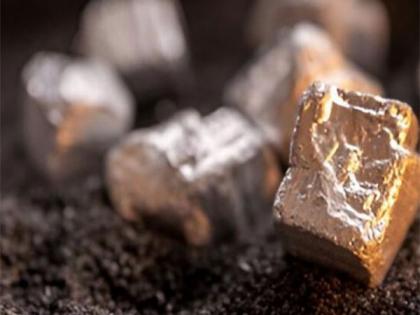Primus Partners chalks roadmap for India to steer its rare earth strategy
By ANI | Updated: August 16, 2025 12:25 IST2025-08-16T12:16:16+5:302025-08-16T12:25:01+5:30
New Delhi [India], August 16 : India is moving ahead to secure its rare earth supply chain, a critical ...

Primus Partners chalks roadmap for India to steer its rare earth strategy
New Delhi [India], August 16 : India is moving ahead to secure its rare earth supply chain, a critical component of its clean energy and electric mobility transition. A new report titled "From Extraction to Innovation" by Primus Partners outlines a comprehensive roadmap to achieve self-reliance in rare earth magnets under the government's "Viksit Bharat" vision.
The India-headquartered global management consulting firm has put forward five policy pillars.
Among the five core policy recommendations are market assurance and demand certainty - it calls for long-term price assurance mechanisms for NdPr oxide and NdFeB magnets, along with structured offtake agreements, to protect investors and unlock domestic demand.
It suggested setting up pilot hubs in mineral-rich states and support for 3-4 industrial leaders to drive scale-up in advanced magnet manufacturing; expansion of monazite mining, rare earth oxide refining, and NdPr production by Indian Rare Earth Limited (IREL), coupled with the creation of a national magnet buffer stock.
A dedicated National Rare Earth Innovation Hub to foster industry-academia collaboration and global joint ventures for technology transfer has also been recommended.
Finally, it called for setting up an inter-ministerial Magnet Ecosystem Coordination Cell under NITI Aayog or DPIIT to harmonise regulatory, fiscal, and industrial strategies.
Budget Boost for Critical Minerals
The Union Budget 2024-25 has already cleared customs duty exemptions and reductions on critical minerals and rare earths.
According to the Primus Partners report, these measures will help "reduce input costs, promote domestic manufacturing, and enhance export competitiveness." The policy push is expected to directly benefit India's electric mobility sector.
In May 2023, Indian Rare Earth Limited (IREL) commissioned a Rare Earth Permanent Magnet (REPM) facility at the Bhabha Atomic Research Centre campus in Visakhapatnam. Built at a cost of Rs 197 crore, the facility has an annual production capacity of 3,000 kg and positions India among the select nations with domestic REPM manufacturing capability.
The supply of essential minerals remains concentrated in a few countries, notably China, a country that controls approximately 85-95 per cent of global rare-earth magnet production. Recent export restrictions imposed by China have already created bottlenecks in the supply chain the world over.
On the other hand, India's reliance on rare earths has only grown, with imports increasing substantially.
To address this, India is actively exploring and developing domestic sources of these minerals, with projects in Jammu and Kashmir, Rajasthan, Jharkhand, and Karnataka.
Additionally, Khanij Bidesh India Limited (KABIL) has established partnerships with mineral-rich countries to secure necessary resources.
India has set targets of 30 per cent electric vehicle penetration by 2030 and net-zero emissions by 2070.
"Given that each EV requires 1 to 2 kg of Neodymium-iron-boron (NdFeB) magnets, India's demand is projected to rise to an estimated 7,154 tonnes by 2030," the Primus Partners report noted.
"This dependency represents a strategic vulnerability, especially as rare-earth magnets are critical not only to EVs but also to industrial automation, electronics, renewable energy systems, and defence applications," it added.
Disclaimer: This post has been auto-published from an agency feed without any modifications to the text and has not been reviewed by an editor
Open in app